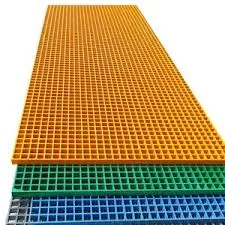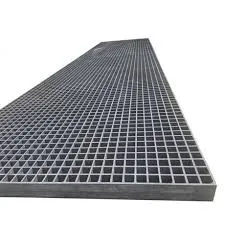
-
 Afrikaans
Afrikaans -
 Albanian
Albanian -
 Amharic
Amharic -
 Arabic
Arabic -
 Armenian
Armenian -
 Azerbaijani
Azerbaijani -
 Basque
Basque -
 Belarusian
Belarusian -
 Bengali
Bengali -
 Bosnian
Bosnian -
 Bulgarian
Bulgarian -
 Catalan
Catalan -
 Cebuano
Cebuano -
 China
China -
 China (Taiwan)
China (Taiwan) -
 Corsican
Corsican -
 Croatian
Croatian -
 Czech
Czech -
 Danish
Danish -
 Dutch
Dutch -
 English
English -
 Esperanto
Esperanto -
 Estonian
Estonian -
 Finnish
Finnish -
 French
French -
 Frisian
Frisian -
 Galician
Galician -
 Georgian
Georgian -
 German
German -
 Greek
Greek -
 Gujarati
Gujarati -
 Haitian Creole
Haitian Creole -
 hausa
hausa -
 hawaiian
hawaiian -
 Hebrew
Hebrew -
 Hindi
Hindi -
 Miao
Miao -
 Hungarian
Hungarian -
 Icelandic
Icelandic -
 igbo
igbo -
 Indonesian
Indonesian -
 irish
irish -
 Italian
Italian -
 Japanese
Japanese -
 Javanese
Javanese -
 Kannada
Kannada -
 kazakh
kazakh -
 Khmer
Khmer -
 Rwandese
Rwandese -
 Korean
Korean -
 Kurdish
Kurdish -
 Kyrgyz
Kyrgyz -
 Lao
Lao -
 Latin
Latin -
 Latvian
Latvian -
 Lithuanian
Lithuanian -
 Luxembourgish
Luxembourgish -
 Macedonian
Macedonian -
 Malgashi
Malgashi -
 Malay
Malay -
 Malayalam
Malayalam -
 Maltese
Maltese -
 Maori
Maori -
 Marathi
Marathi -
 Mongolian
Mongolian -
 Myanmar
Myanmar -
 Nepali
Nepali -
 Norwegian
Norwegian -
 Norwegian
Norwegian -
 Occitan
Occitan -
 Pashto
Pashto -
 Persian
Persian -
 Polish
Polish -
 Portuguese
Portuguese -
 Punjabi
Punjabi -
 Romanian
Romanian -
 Russian
Russian -
 Samoan
Samoan -
 Scottish Gaelic
Scottish Gaelic -
 Serbian
Serbian -
 Sesotho
Sesotho -
 Shona
Shona -
 Sindhi
Sindhi -
 Sinhala
Sinhala -
 Slovak
Slovak -
 Slovenian
Slovenian -
 Somali
Somali -
 Spanish
Spanish -
 Sundanese
Sundanese -
 Swahili
Swahili -
 Swedish
Swedish -
 Tagalog
Tagalog -
 Tajik
Tajik -
 Tamil
Tamil -
 Tatar
Tatar -
 Telugu
Telugu -
 Thai
Thai -
 Turkish
Turkish -
 Turkmen
Turkmen -
 Ukrainian
Ukrainian -
 Urdu
Urdu -
 Uighur
Uighur -
 Uzbek
Uzbek -
 Vietnamese
Vietnamese -
 Welsh
Welsh -
 Bantu
Bantu -
 Yiddish
Yiddish -
 Yoruba
Yoruba -
 Zulu
Zulu
Feb . 19, 2025 10:11
Back to list
Scrubbers
Fiberglass food-grade equipment is emerging as a game-changer in the food processing industry, redefining safety standards while enhancing efficiency. This cutting-edge technology is gaining momentum, thanks to its unique properties and their potential to revolutionize food production environments.
Fiberglass’s versatility is amplified by its customization potential. In food-grade applications, adaptability can enhance productivity. Custom molds allow for making equipment that precisely meets the unique demands of different food processing tasks. This flexibility in design empowers manufacturers to optimize their production lines aspiring to elevated efficiency levels. Furthermore, from an environmental perspective, fiberglass emerges as a sustainable contender. Unlike many materials, fiberglass is non-toxic and can be produced with limited environmental footprint. This aligns seamlessly with the growing regulatory and consumer-driven focus on green manufacturing practices. Testimony to its efficacy can be found in numerous case studies where companies have integrated fiberglass components seamlessly into their existing lines, witnessing significant reductions in maintenance intermittencies and downtimes. These examples underscore fiberglass's authoritative capabilities as a reliable, long-term investment in food safety and production efficiency. As industry experts continue to evaluate the roles of materials in food safety, fiberglass undoubtedly asserts itself as a frontrunner, harmonizing innovative technology with practical application. Specialists in the field recommend further exploration of potential applications within tailored contexts, ensuring businesses maximize returns yielded from fiberglass' adaptable, durable, and safe nature. In conclusion, fiberglass food-grade equipment deserves consideration for its diverse attributes that bolster safety and promote effectiveness. Businesses looking to innovate their food processing methods while upholding stringent health standards will find in fiberglass a robust ally lifting operations into the new age of production.


Fiberglass’s versatility is amplified by its customization potential. In food-grade applications, adaptability can enhance productivity. Custom molds allow for making equipment that precisely meets the unique demands of different food processing tasks. This flexibility in design empowers manufacturers to optimize their production lines aspiring to elevated efficiency levels. Furthermore, from an environmental perspective, fiberglass emerges as a sustainable contender. Unlike many materials, fiberglass is non-toxic and can be produced with limited environmental footprint. This aligns seamlessly with the growing regulatory and consumer-driven focus on green manufacturing practices. Testimony to its efficacy can be found in numerous case studies where companies have integrated fiberglass components seamlessly into their existing lines, witnessing significant reductions in maintenance intermittencies and downtimes. These examples underscore fiberglass's authoritative capabilities as a reliable, long-term investment in food safety and production efficiency. As industry experts continue to evaluate the roles of materials in food safety, fiberglass undoubtedly asserts itself as a frontrunner, harmonizing innovative technology with practical application. Specialists in the field recommend further exploration of potential applications within tailored contexts, ensuring businesses maximize returns yielded from fiberglass' adaptable, durable, and safe nature. In conclusion, fiberglass food-grade equipment deserves consideration for its diverse attributes that bolster safety and promote effectiveness. Businesses looking to innovate their food processing methods while upholding stringent health standards will find in fiberglass a robust ally lifting operations into the new age of production.
Next:
Related Products









